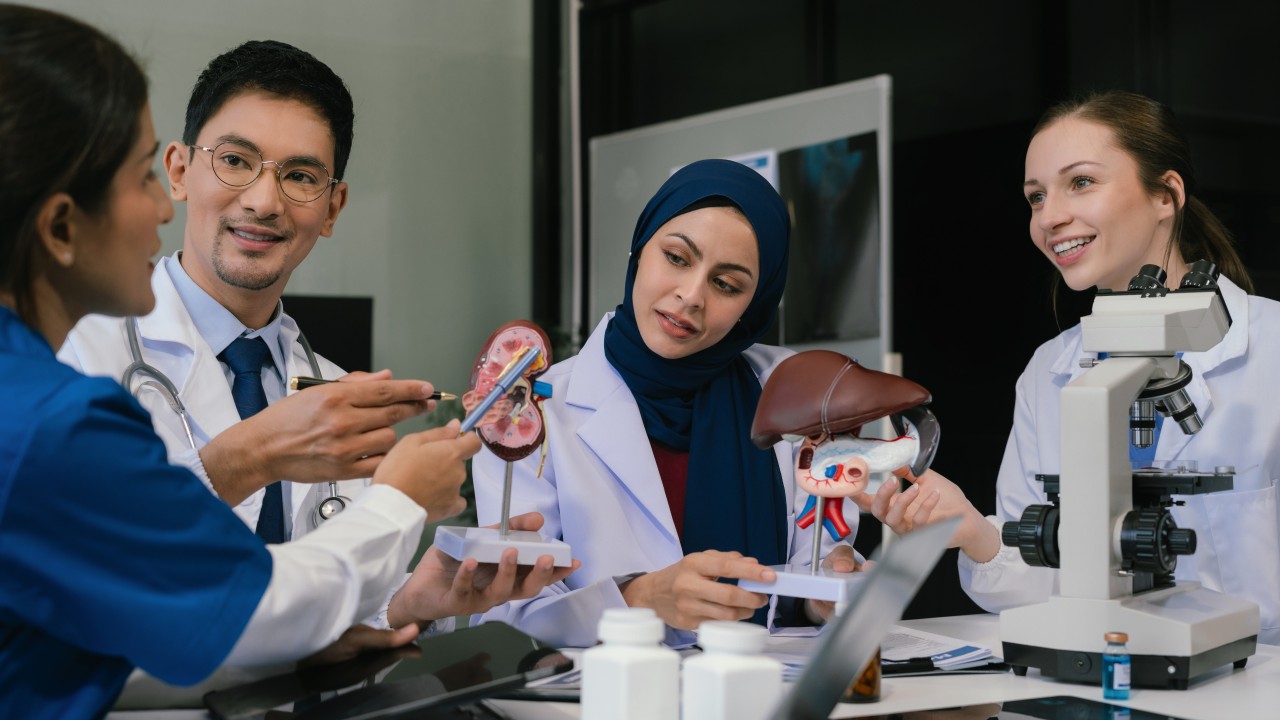The medical device industry is undergoing a radical transformation, with innovations in robotics
, AI
, IoT
, and wearable technology
driving a new era of precision, personalization, and improved patient outcomes. As healthcare moves toward more data-driven, personalized care, medical device manufacturers are tasked with developing devices that not only meet strict regulatory standards but also enhance patient care through real-time monitoring, advanced diagnostics, and robotic-assisted surgeries.
This article delves into four key areas of medical device manufacturing - diagnostic equipment
, therapeutic devices
, wearable technology
, and surgical instruments
- to explore how innovation is shaping the future of healthcare and how manufacturers can stay competitive by embracing these trends.
1. Diagnostic Equipment: AI and Automation for Speed, Accuracy, and Precision
- Accuracy and Precision: Diagnostic tools must deliver precise, reliable results to guide treatment decisions.
- Regulatory Compliance: Manufacturers face complex regulatory hurdles to ensure diagnostic devices are safe and effective.
- Data Management: Managing and analyzing the vast amounts of data generated by diagnostic devices is essential for improving patient outcomes.
- AI-Driven Diagnostics: AI technologies like IBM Watson Health Imaging
are transforming diagnostic equipment by enhancing image analysis and identifying patterns that improve diagnostic accuracy.
- IoT-Enabled Devices: Platforms like GE Healthcare Centricity
are allowing diagnostic devices to transmit real-time data to healthcare systems, enabling faster decision-making and improving patient care.
- AiDOOS
connects diagnostic equipment manufacturers with the technology and talent needed to integrate AI, IoT, and automation into their devices, ensuring greater accuracy and efficiency.
2. Therapeutic Devices: Enhancing Precision and Patient Outcomes with Real-Time Monitoring
- Precision and Reliability: Therapeutic devices must consistently deliver precise treatments without malfunction.
- Regulatory Requirements: Navigating regulatory compliance for life-sustaining devices like pacemakers and insulin pumps can be time-consuming and expensive.
- Miniaturization: The push for smaller, more discreet devices challenges manufacturers to pack advanced features into compact designs.
- AI-Enhanced Therapeutic Devices: AI-driven platforms like Medtronic CareLink
enable real-time monitoring and automated adjustments, improving the reliability of devices such as pacemakers and insulin pumps.
- Wearable Therapeutics: Devices like advanced prosthetics and drug delivery systems are becoming smarter and more responsive to patient needs, offering personalized treatment plans.
- AiDOOS
supports manufacturers by providing access to experts in miniaturization, compliance, and real-time data integration, helping them develop cutting-edge therapeutic devices that enhance patient outcomes.
3. Wearable Technology: Real-Time Data for Personalized Healthcare
- Accuracy and Reliability: Wearables must provide consistently accurate health data, especially when used for medical purposes like continuous glucose monitoring or heart rate tracking.
- Data Security and Privacy: Wearables collect sensitive health information, requiring manufacturers to ensure secure data transmission and storage.
- Battery Life and Size: As wearables become smaller and more powerful, manufacturers must balance size and functionality without sacrificing battery life.
- AI-Driven Wearables: Platforms like Fitbit Health Solutions
enable wearables to provide real-time health insights using AI, helping users track and manage chronic conditions.
- IoT Integration: Devices integrated with platforms like Apple HealthKit
allow healthcare providers to monitor patient health remotely, ensuring continuous care.
- AiDOOS
helps wearable tech manufacturers enhance accuracy, integrate IoT, and optimize battery life through access to AI and data security expertise, driving the future of personalized healthcare.
4. Surgical Instruments: Robotics and Precision in Modern Surgery
- Precision and Accuracy: Surgical instruments must be highly precise, especially in robotic-assisted procedures, where any error can have serious consequences.
- Robotics Integration: Developing robotic surgery tools requires expertise in AI, automation, and robotics, making it a complex process.
- Regulatory Compliance: Surgical instruments must meet stringent regulatory standards, ensuring safety and reliability in high-risk environments.
- Robotic-Assisted Surgery: Robotic surgery systems like Intuitive Surgical da Vinci
enable surgeons to perform complex procedures with enhanced precision, reducing recovery times and improving patient outcomes.
- 3D-Printed Surgical Tools: Platforms like Materialise Medical
are allowing manufacturers to create customized surgical instruments tailored to individual patients, improving surgical precision.
- AiDOOS
supports manufacturers in developing advanced robotic-assisted surgery tools and 3D-printed instruments, helping them navigate regulatory hurdles and deliver high-precision surgical devices.
Conclusion: The Future of Medical Device Manufacturing
The medical device industry is on the cusp of a technological revolution, with AI, robotics, wearables, and real-time data integration driving the next generation of healthcare innovations. As the demand for more personalized, precise, and minimally invasive devices grows, manufacturers must adapt by integrating these cutting-edge technologies into their product lines.
AiDOOS
is helping medical device manufacturers stay ahead of the curve by providing access to the talent, tools, and technologies needed to innovate. From AI-driven diagnostic equipment to robotic-assisted surgery instruments, AiDOOS empowers manufacturers to develop medical devices that improve patient outcomes and transform healthcare.
#MedicalDevices HealthcareInnovation #AIinHealthcare RoboticSurgery #WearableTech #PatientCare

Digital Marketing Executive || Lead Generation || Growth Strategies || SEO || Facebook & Instagram campaigns || PPC marketing ||
2 个月Great information, thanks for sharing! We are hosting a webinar on FDA regulations for medical device cybersecurity on September 20th, starting at 6 PM. If you want to learn how to meet these standards, feel free to join us.? ???? ???????????????? ??????????, https://qualysec.com/webinar/fda-regulation-for-medical-devices/